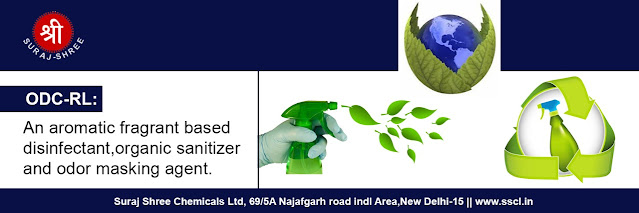There is a wide variety of Bio Pesticide Manufacturer, including biopesticides, biological controls and biological controls, which may be used in agriculture for the management of pests or diseases. In general, biopesticides are predators, parasitoids, fungus, or nematodes that feed on a pest's prey and take advantage of the food chain's natural interactions. The following advantages accrue to growers who make use of biologicals:
An unintended consequence of the treatment
There are a number of biological control products that target a specific pest or disease while not affecting non-target species like birds and bees or beneficial soil organisms.
● Pollution
In the end, cattle feed manufacturers biodegrade and leave no toxic residues on or in the environment since they are naturally existing organisms. This function aids in the protection of farmworkers and the environment.
● Cost
Biological control, a component of IPM, aims to maintain pest and disease pressures low enough to avoid economic harm. Resistance to physical controls is nonexistent. Farmers can properly forecast input costs since the rate of treatment only changes in response to pest or disease pressure.
● Insect protection
Records demonstrate that conventional pesticides are not a long-term answer since pests develop resistance to them, but this never occurs when organic pesticides are used.
● Market
The demand for agricultural goods as well as rabbit feed manufacturer have undergone organic treatments grew as consumers became more aware of the hazards of synthetic chemicals. Using these compounds is thus fraught with peril, since you run the danger of suffering significant financial setbacks due to customers turning away from your goods.
Pesticide-resistant pests are on the rise.
Over the last several decades, crop protection has been provided by site-specific insecticides. Insect pests, pathogenic bacteria, and fungi are mutating and gaining resistance to crop protection agents, which has resulted in decreased effectiveness and a return of pests. Botrytis cinereal, a significant disease species that have gained resistance, impairs fruit and vegetable crop output before and after harvest.
There have been various nations where pesticide spraying has contributed to a rise of drug-resistant bacteria. Strawberries were the most often planted crops in the impacted areas. Fungicide resistance is a severe threat to the fungicide market's development, and biopesticides have a chance to take advantage of it.
To sum it up
Biopesticides are often regarded as low-risk products for human health in part because they are effective in controlling pests and illnesses during work as a plant growth promoter. Regulators or merchants don't check Residue-free biopesticides on a regular basis.
Many biopesticides have zero or minimal re-entry and handling intervals, becoming more relevant when choosing a plant protection product for use in protected crops.
Some microbial biopesticides may proliferate on or near the target pest or disease, providing them with a degree of self-perpetuating control. They can frequently be sprayed using current spray equipment.


Comments
Post a Comment